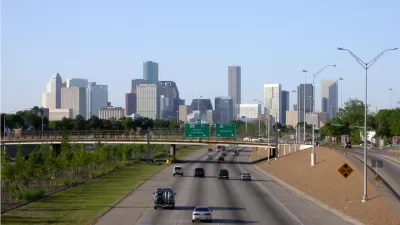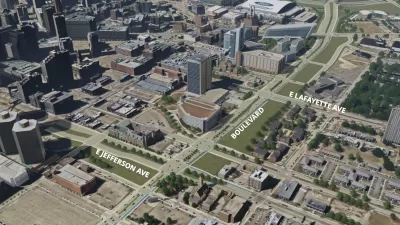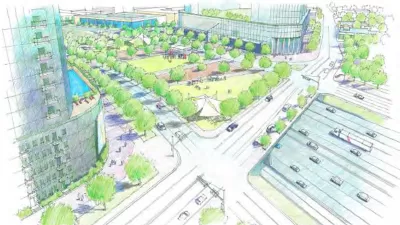When freeways are dismantled, economic, and social benefits often follow. A mid-20th Century mechanistic view fails to understand such outcomes.

On the week that the Congress for the New Urbanism released its twice-yearly Freeways Without Futures list to draw attention to urban Interstates that should be dismantled, a Virginia historian threw cold water on the entire argument.
Swift acknowledges that urban Interstates contributed to a "North American style of daily living that is utterly dependent on the automobile," and that boring these highways through neighborhoods damaged cities and their inhabitants. “The collateral damage was extreme,” he says.
He nevertheless endorses a mid-Century mechanistic view of planning that is at odds with the view of urbanists, who think in terms of synergies. Here’s the mechanistic approach: A road is a road and a car is a car. If you have cars to move, you build a road. You expand the road when necessary.
FULL STORY: Defending urban freeways at all costs ignores the potential of cities

Alabama: Trump Terminates Settlements for Black Communities Harmed By Raw Sewage
Trump deemed the landmark civil rights agreement “illegal DEI and environmental justice policy.”

Study: Maui’s Plan to Convert Vacation Rentals to Long-Term Housing Could Cause Nearly $1 Billion Economic Loss
The plan would reduce visitor accommodation by 25% resulting in 1,900 jobs lost.

Why Should We Subsidize Public Transportation?
Many public transit agencies face financial stress due to rising costs, declining fare revenue, and declining subsidies. Transit advocates must provide a strong business case for increasing public transit funding.

Wind Energy on the Rise Despite Federal Policy Reversal
The Trump administration is revoking federal support for renewable energy, but demand for new projects continues unabated.

Passengers Flock to Caltrain After Electrification
The new electric trains are running faster and more reliably, leading to strong ridership growth on the Bay Area rail system.

Texas Churches Rally Behind ‘Yes in God’s Back Yard’ Legislation
Religious leaders want the state to reduce zoning regulations to streamline leasing church-owned land to housing developers.
Urban Design for Planners 1: Software Tools
This six-course series explores essential urban design concepts using open source software and equips planners with the tools they need to participate fully in the urban design process.
Planning for Universal Design
Learn the tools for implementing Universal Design in planning regulations.
Caltrans
Smith Gee Studio
Institute for Housing and Urban Development Studies (IHS)
City of Grandview
Harvard GSD Executive Education
Toledo-Lucas County Plan Commissions
Salt Lake City
NYU Wagner Graduate School of Public Service





























